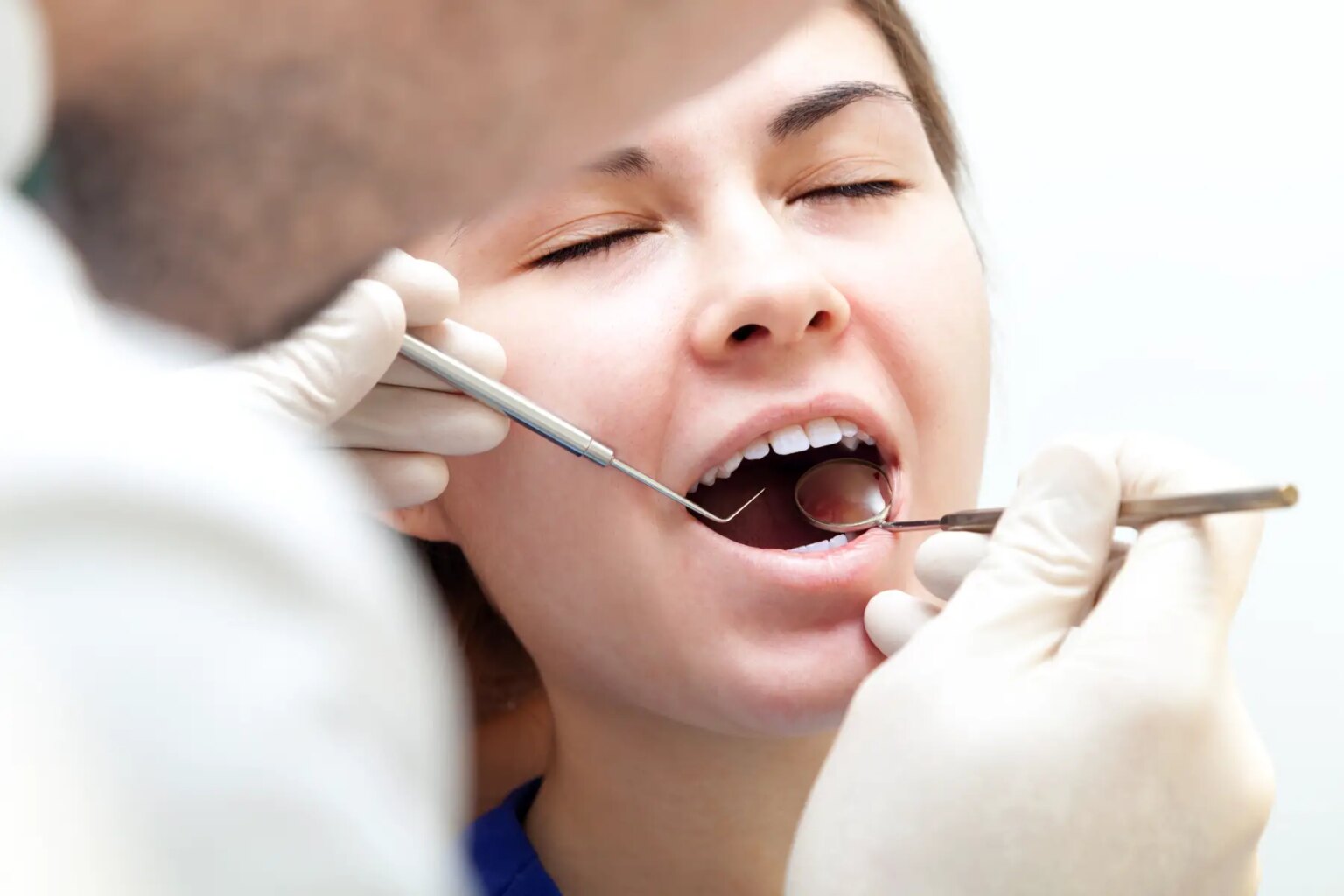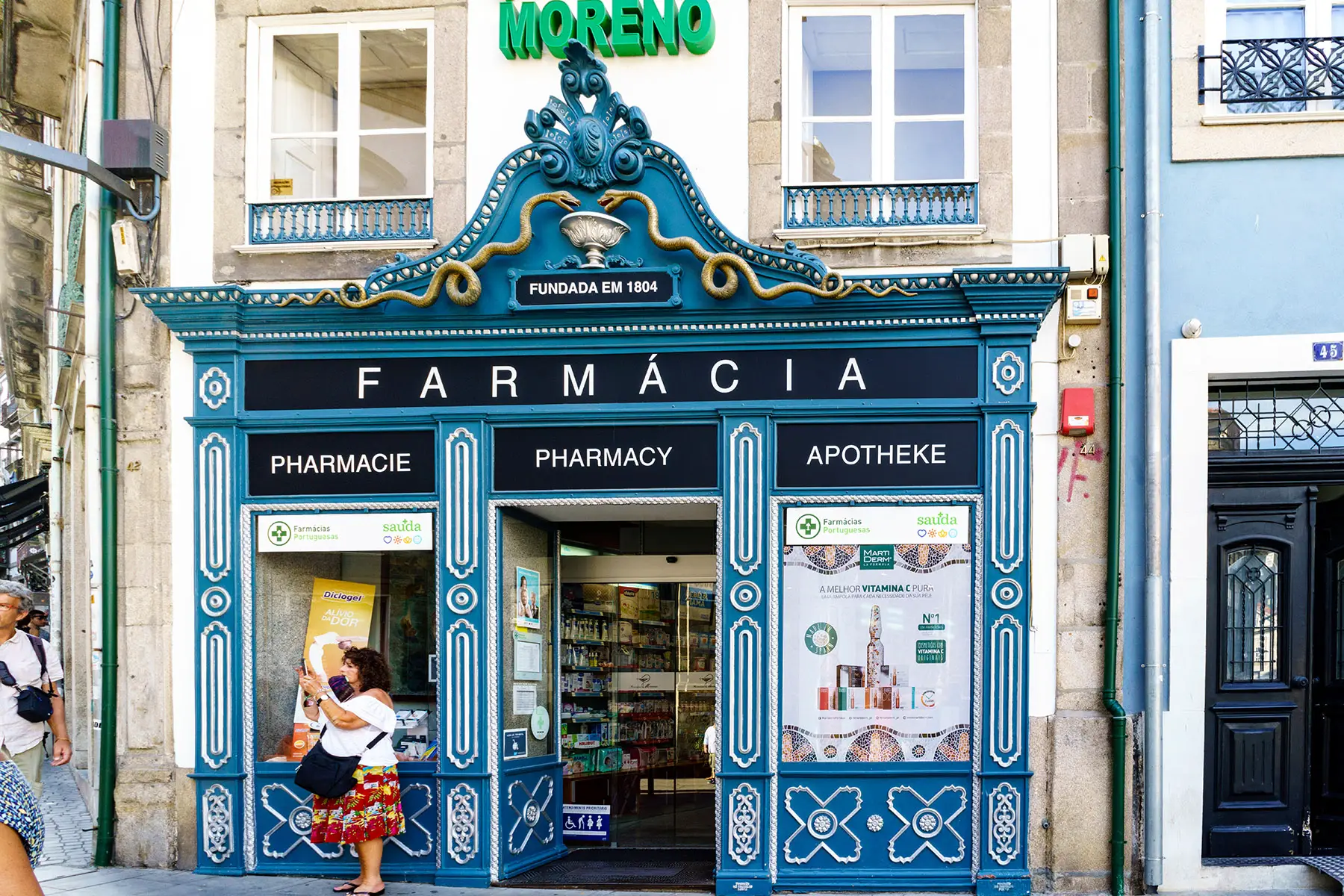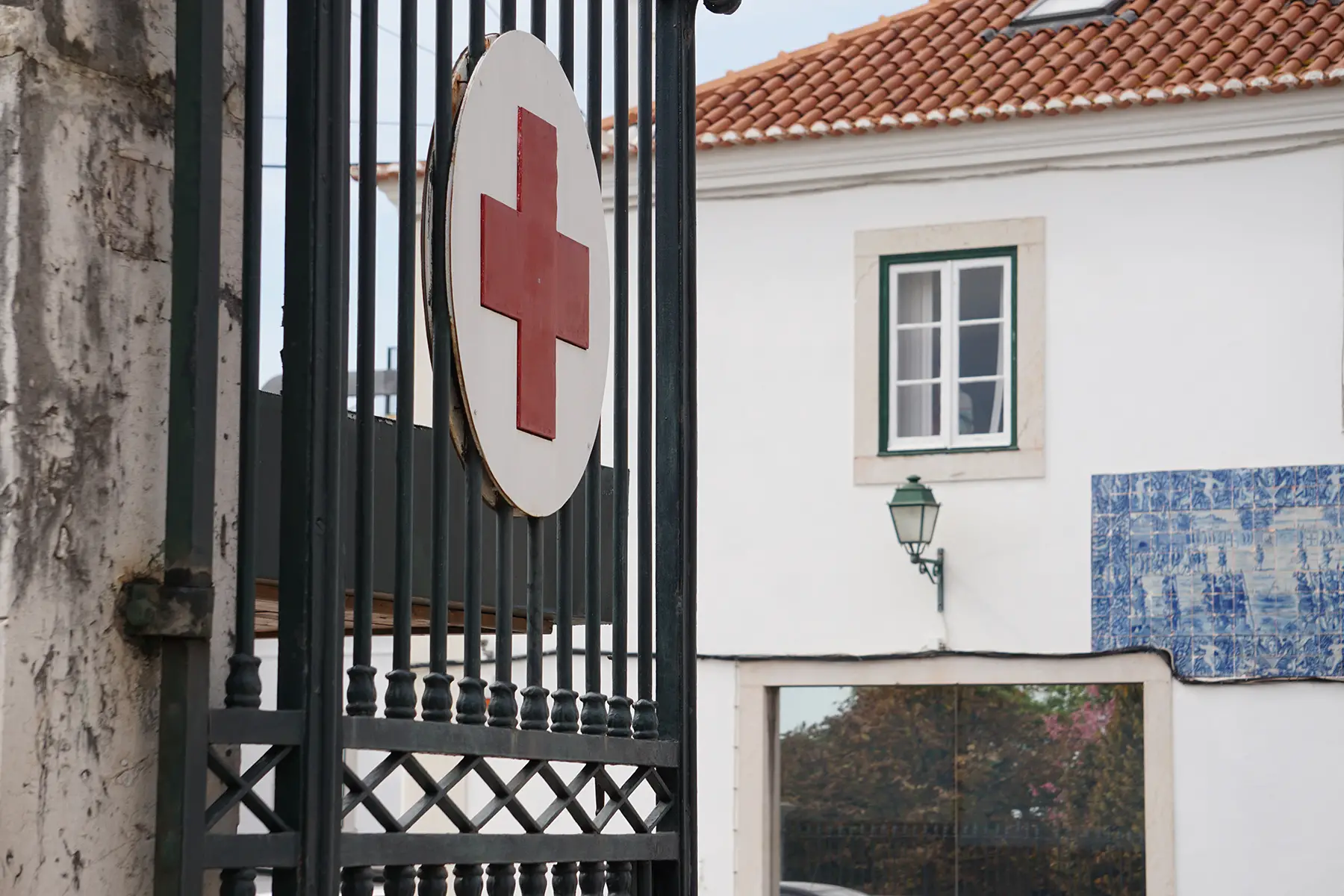While Portugal’s healthcare system ranks among the best in the world, the National Health Service (NHS), or Serviço Nacional de Saúde (SNS), only covers dental care for a small population sector, such as children and senior citizens. Therefore, everyone else must pay for dental care directly to the SNS or via private dental insurance.
This article will explain everything about visiting a dentist in Portugal by looking at:
- The healthcare system in Portugal
- Dental care in Portugal
- Public dental care in Portugal
- Private dental care in Portugal
- Dental insurance in Portugal
- Accessing dental care in Portugal
- Finding a dentist in Portugal
- Visiting a dentist in Portugal
- The cost of dental care in Portugal
- Children’s dental care in Portugal
- Emergency dental care in Portugal
- Useful resources
Cigna Global
Want access to the best private medical services in Portugal? Speak to the healthcare professionals at Cigna Global today and find a policy that’s right for you. Take advantage of their global network of doctors, specialists, therapists and more with coverage tailor-made for you and your family. If you’re starting a new life in Portugal, get peace of mind with Cigna Global.
The healthcare system in Portugal
The healthcare system in Portugal consists of three tiers. The first is the National Health Service (NHS) – or Serviço Nacional de Saúde (SNS) – which is overseen by the Ministry of Health (Ministério da Saúde) and funded through taxes and social security (Segurança Social) contributions. The second tier is a health subsystem that provides healthcare for specific organizations or professions, such as the military and public servants. And the third tier is voluntary private medical healthcare which consists of several national and international insurance providers.
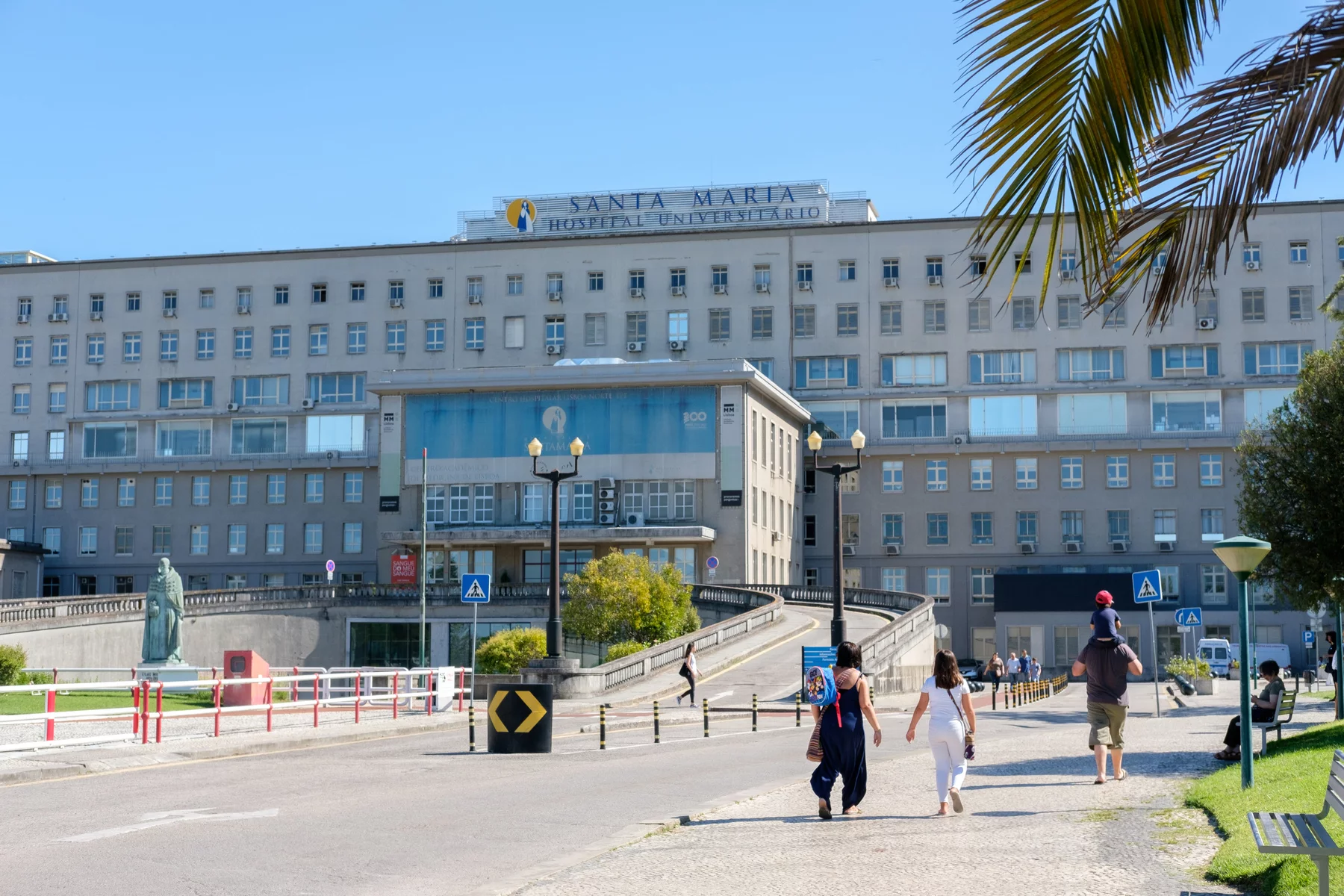
All permanent residents in Portugal can register at a local health center for SNS services. Notably, citizens from the European Union (EU), European Economic Area (EEA), and Switzerland can access healthcare by using their European Health Insurance Card (EHIC). The EEA countries include Lichtenstein, Iceland, and Norway.
Dental care in Portugal is mainly available in private clinics which charge treatments fees. That said, the National Program for the Promotion of Oral Health (Programa Nacional de Promoção de Saúde Oral – PNPSO) offers free quality dental care for those who need it the most. This includes children, young people with special health needs, patients diagnosed with HIV/AIDS or oral cancer, some pensioners, and pregnant women.
Dental care in Portugal
Many studies suggest that dental care in Portugal is among some of the best in the world. For instance, the country ranked fifth in the 2020 Healthiest Teeth Index. The study looks at tooth decay, sugar consumption, dental facilities, and government-funded measures across 26 countries.
Portugal currently has 11,640 licensed dentists, which is more than twice the number recommended by the World Health Organization (WHO). With 87.5 dentists per capita, therefore, the country has one of the highest numbers of dentists in Europe.
Dentists recommend having a check-up at least once a year, or ideally, every six months. However, the 2021 National Oral Health Barometer (Barómetro de Saúde Oral) concluded that only 61% of Portuguese access dental care at least once a year. The same study stated that 28% of the population has never visited a dentist or only accessed emergency treatment.
Public dental care in Portugal
State dental care is mainly available for patients who are covered under the National Program for the Promotion of Oral Health (Programa Nacional de Promoção de Saúde Oral – PNPSO). The eligible groups include:
- Children and young people
- Senior citizens receiving the solidarity supplement
- Pregnant women
- Patients diagnosed with HIV/AIDS or oral cancer
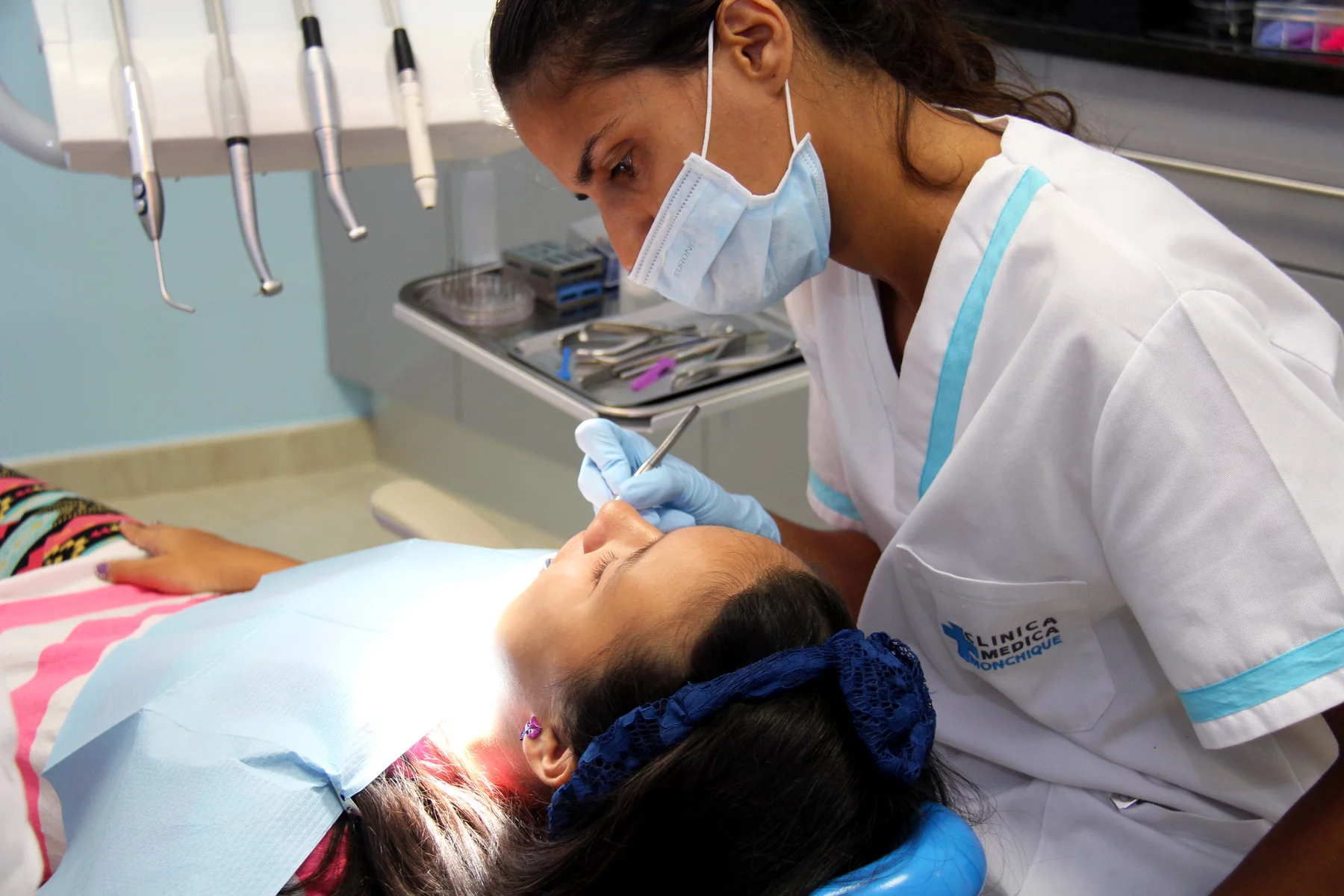
When the Portuguese government created the SNS in 1979, it left out dentistry. It was an oversight. Therefore, they launched a pilot project in 2016 to integrate dental care into the primary healthcare system to fill this gap. The aim is to provide low-cost dentistry in public health centers for all residents, especially those on low incomes. Unfortunately, this project did not reach its target of a dental clinic in every public healthcare center across the country.
What does public dental care cover?
If you are covered under the PNPSO program, you can access free dental care for procedures such as restorations, extractions, reparations, and root canals. The SNS will issue dental vouchers (cheques-dentista) to cover your costs. However, they may limit how much you can claim per year.
Other residents need to pay if they visit a dental practice at a public health center. The initial appointment costs around €7, and subsequent treatments will cost extra. You can contact the clinic for a complete list of treatments and costs. You can also find your nearest provider on the SNS map.
Private dental care in Portugal
Since state dental care only covers a small range of treatments, most residents rely on private dental care. In addition to providing standard oral care, private clinics also offer cosmetic work, such as whitening or straightening, and other extensive procedures that are not available through public dentists.

According to the 2021 Oral Barometer, 41% of residents haven’t been to the dentist for more than a year. Furthermore, 70.3% stated that they had no need for dental services, and 22.1% said they couldn’t afford it.
How much does private dental care cost?
The cost of dental treatments varies between clinics in Portugal. Therefore, it is a good idea to research several practices in order to find one that meets both your needs and budget. Below is an estimated cost for procedures with private dentists in Portugal:
- Checkup: €20–40
- Teeth cleaning: from €25
- Tooth extraction: €40 (more for wisdom teeth)
- Tartar removal: €30–50
- Whitening: €150–200
- Teeth straightening: from €800 for fixed braces and €3,500 for invisible braces (Invisalign)
- Implants: from €400
You can pay at the clinic after the appointment, and for extended treatments like braces, you can set up a payment plan. If you have private insurance, make sure to check whether you need to pay upfront and get reimbursed or if the insurance provider pays the practice directly.
Dental insurance in Portugal
Despite there being a high-quality public healthcare system in Portugal, it is common for people to take out additional private dental insurance in order to cover costly procedures, such as braces and implants.
Notably, dental insurance may be included in your health insurance plan or as an optional add-on. Premiums vary between insurers and depend on your circumstances. Some of the main international insurance companies that cover dental care in Portugal include:
Accessing dental care in Portugal
Public dental care is mainly available for groups that are covered by the PNPSO program. However, a few health centers are starting to provide this public service for all residents.
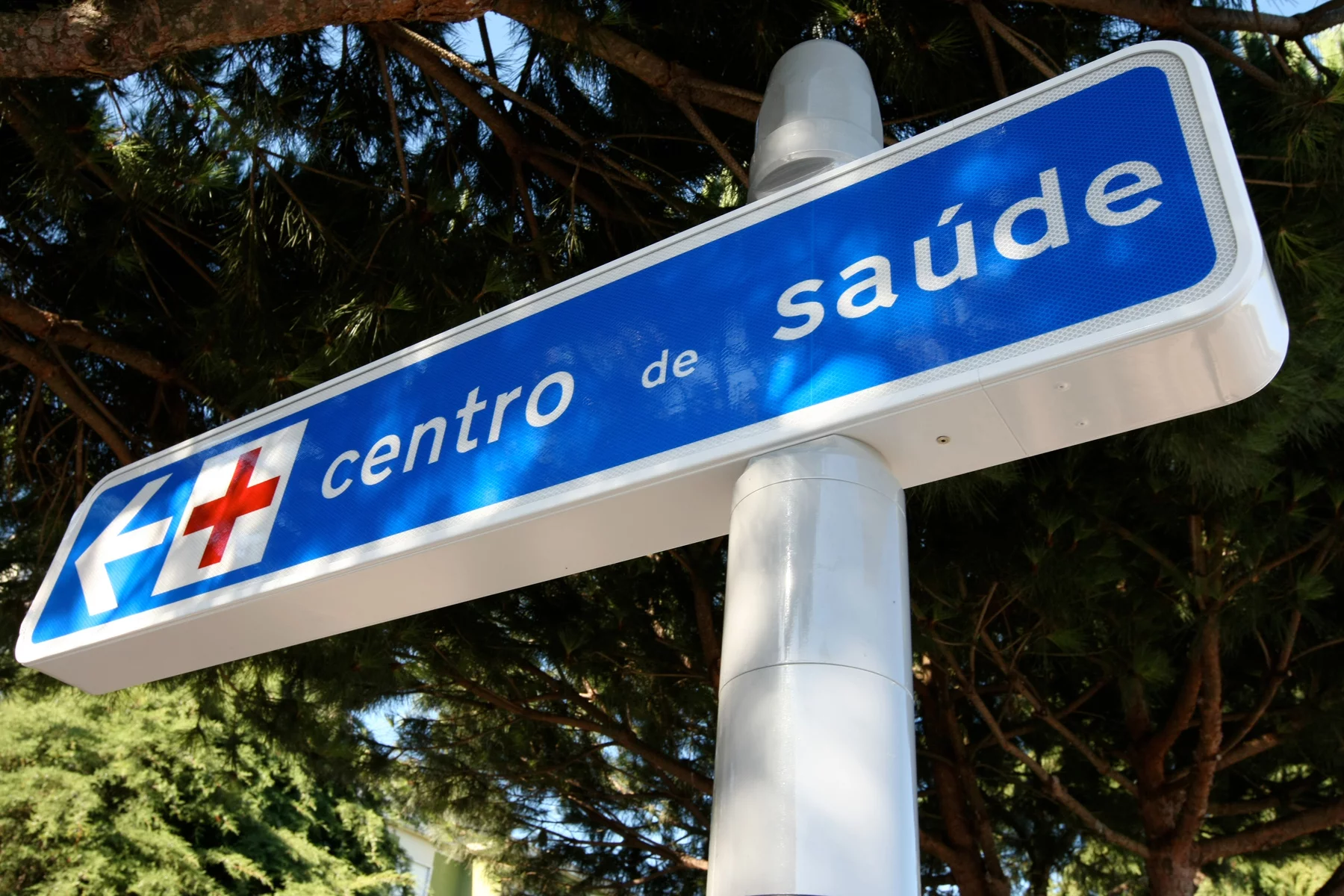
As long as you are a resident of Portugal, you can request an appointment. However, if you don’t have a healthcare number yet, you will need to register at your nearest health center with your resident card. You can then book an appointment with a General Practitioner (GP) who will refer you to a dentist.
When it comes to accessing private dentists, you can simply register directly at your chosen clinic. You will need to present your resident or citizen card, complete an application, and include your dental records. Non-residents can provide another form of identification, such as a passport. If you have private insurance, you will also need to show your insurance card.
Finding a dentist in Portugal
Portuguese residents are free to choose their dentist. According to the 2021 Oral Barometer (in Portuguese), 70.8% of patients found their dentist through family or friends, while 4.7% followed their insurance providers’ recommendations.
Dentistry is a regulated profession in Portugal, and all dentists must register with the Order of Medical Dentists (Ordem dos Médicos Dentistas – OMD). The SNS website provides a list of public dentists who are available in health centers. If there is no dentist at your local health center, your doctor may refer you to another clinic nearby.
Private dentists are much easier to find than public, and a quick online search for a dental clinic (clínica dentária) will list the nearest services. If you want to compare the costs and ratings of different dental practices, the WhatClinic website is a handy resource.
Finding an English-speaking dentist
Fortunately, you can find English-speaking dentists in Portugal, particularly in popular tourist and expat areas such as Lisbon and the Algarve. Private clinics often mention on their website if a doctor speaks other languages. If not, you can call to confirm. That said, it may be challenging to find an English-speaking dentist in public health centers, especially in smaller regions.
Visiting a dentist in Portugal
Most dentists in Portugal require you to make an appointment, which can be done over the phone or in person. Often, you can also make online bookings. If you are receiving a PNPSO treatment, the GP at your health center usually arranges your initial dental appointment.

It is important to be aware that waiting times for public dentist appointments can be long, depending on the urgency. In fact, it is not uncommon to wait several months to be seen. Conversely, private dental clinics usually have spots available within a couple of weeks.
When arriving for an appointment, you will need to check in at reception and present a form of identification. In a health center, all you need is your citizen or resident card. For private clinics, however, you will also need to show your passport and an insurance card (if you have one). Once they are ready, the dentist will call you to the consulting room. After the appointment, you can settle the payment with the receptionist. If you need a follow-up procedure, you can also book it directly with them.
The cost of dental care in Portugal
If you are not eligible for PNPSO treatments, then you must pay for consultations. However, there is also a basic fee exemption (isenção de taxas moderadoras) for people with disabilities and patients who are unemployed or on a low income.
Private dental clinics often post their service fees online, making it easy to estimate initial costs. Still, it’s a good idea to book a preliminary examination to get a medical opinion of your oral care needs. Just make sure to ask for a written quotation before going ahead with any treatment.
If you have private health insurance, you may have to pay upfront if they don’t have a prior arrangement with the dental clinic. Your insurance provider will then reimburse you if you put in a claim.
Low-cost dental care in Portugal
Some dental treatments can be expensive. However, luckily, there are a few ways to access low-cost dental care in Portugal. For instance, you can see a public dentist at your local health center or use dental vouchers if you are a PNPSO patient.
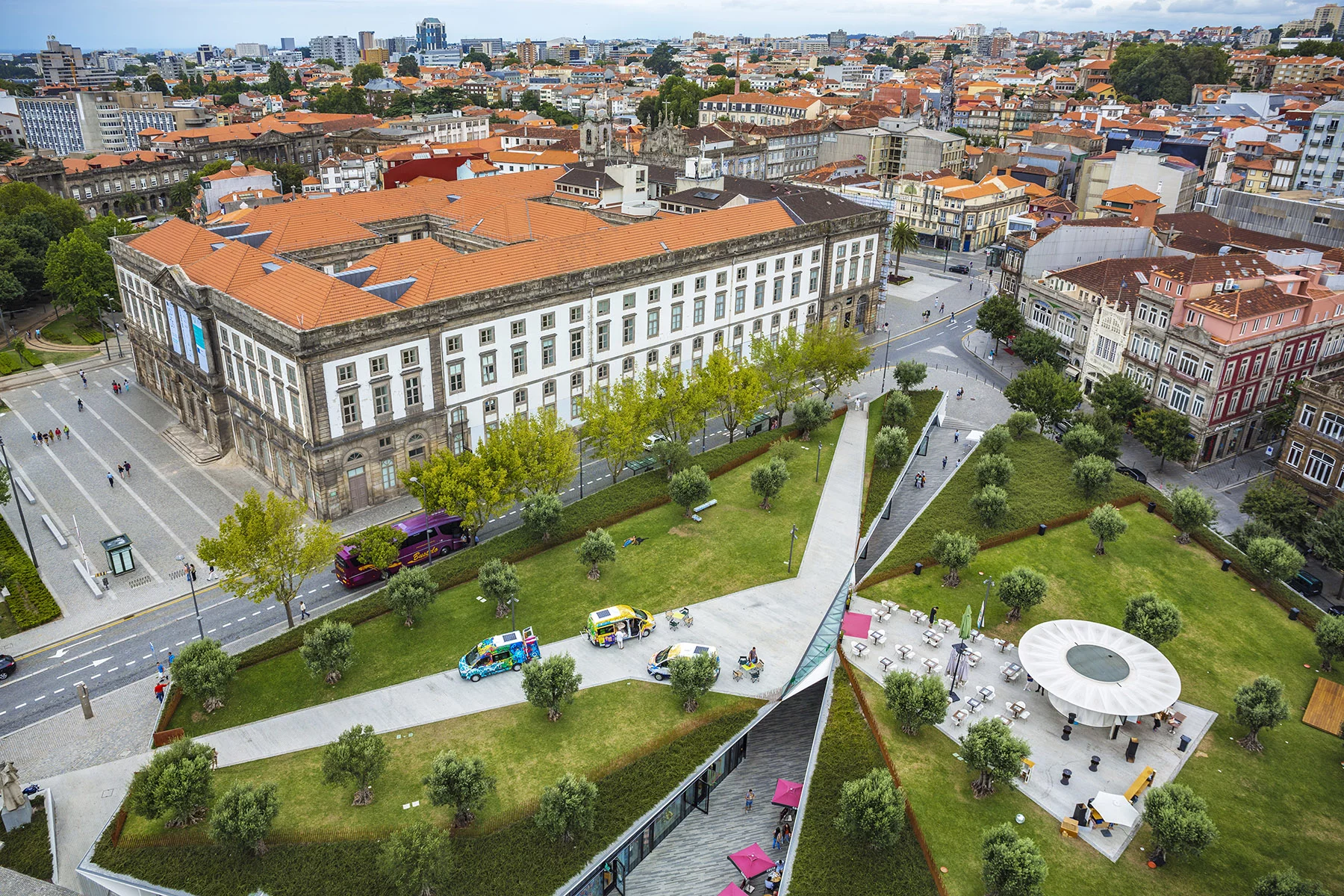
Alternatively, you can visit a Faculty of Dental Medicine (Faculdade de Medicina Dentária). Dental students conduct these consultations under the supervision of their lecturers. This service charges much lower fees than private clinics. These are available in a few places in Portugal, such as the University of Porto and the University of Lisbon. You can contact the universities directly to book an appointment.
Children’s dental care in Portugal
Children up to the age of 18 receive free dental care in Portugal through the PNPSO program if they are residents and registered with the SNS. Typically, an oral hygienist does the initial screening and examinations in schools, and they will refer a child to a dentist, if necessary. Families with children under six should request a dental voucher through their GP.
In 2021, only 60.3% of children (in Portuguese) used dental vouchers in Portugal. And pre-teens between the ages of 10 and 12 used these more than adults and younger ones. Unfortunately, these vouchers only cover preventive care, so you will have to pay for orthodontic treatments, such as braces and retainers. Prices start at around €500 for retainers and €1,000 to €3,000 for braces.
Emergency dental care in Portugal
Typical situations requiring emergency dental care may include severe toothache, broken teeth, gum pain, or a dental abscess. If you are struggling with any of these, you should contact the SNS at 808 24 24 24 or your private dentist. Conveniently, the online search tool, Dentalby, also lists emergency dentists across the country. If you can’t get an appointment immediately and the ailment worsens or becomes life-threatening, you can call the general emergency number at 112.
Many dental clinics in Portugal also provide emergency services. However, some will charge extra for these appointments. If you don’t have private insurance, you will have to cover the costs.
Useful resources
- Serviço Nacional de Saúde (SNS) – the Portuguese National Health Service (NHS)
- Ordem dos Médicos Dentistas (OMD) – the official entity that represents all dentists in Portugal
- Associação Portuguesa de Higienistas Orais (APHO) – the Association of Portuguese Oral Hygienists
- Dentalby – lists emergency dentists across the country
